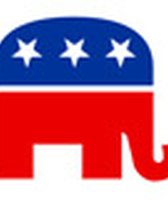Stand up for the facts!
Our only agenda is to publish the truth so you can be an informed participant in democracy.
We need your help.
I would like to contribute
SUMMARY: Obama is right when he says pumping tires to their full pressure could save as much gasoline as the nation would get from new offshore drilling. But in another statement, he mistakenly says it would reduce oil consumption by 3 to 4 percent.
Who would've guessed tire pressure would turn out to be Topic A on the campaign trail? The campaigns have been talking about it for days.
First Sen. Barack Obama suggested motorists could conserve more gasoline through proper tire inflation and tune-ups than oil companies could produce by drilling offshore. We found that True.
Sen. John McCain's campaign mocked Obama for focusing on the issue, sending out tire gauges and implying tire-pressure vigilance is the extent of Obama's energy plan (an implication we chose not to fact-check, probably much to the relief of the McCain campaign).
Then Obama brought the subject up again on August 5, knocking McCain for mocking him, and in the process overstating the case for proper tire inflation. "The Republicans are going around -- this is the kind of thing they do, I don't understand it -- they're going around, they're sending, like, little tire gauges, making fun of this idea, as if this is Barack Obama's energy plan," Obama said at a town hall in Ohio. "Now, two points: One, they know they're lying about what my energy plan is. But the other thing is they're making fun of a step that every expert says would absolutely reduce our oil consumption by 3 to 4 percent."
Sign up for PolitiFact texts
The McCain campaign and a conservative blog brought that last sentence to our attention, and argued that we were too generous to Obama in finding his prior claim true.
Obama's prior claim was more carefully couched. There he suggested that inflating tires properly and getting tune-ups could "save all the oil" we could get from drilling in protected areas offshore. Correcting under-inflated tires could save 1.3 to 2.8 billion gallons of gasoline a year, various experts told us. To get that much gas, you need a minimum of 68 to 144 million barrels of oil. New offshore drilling would produce about 73 million barrels of extra oil a year by 2030, the government estimates.
So yes, tire inflation and tune-ups could easily top the oil we could get offshore, as Obama said. In the latter claim, Obama didn't talk about what tire inflation and tune-ups "could" do. He said "every expert" was in agreement that tire inflation "would absolutely reduce our oil consumption" by 3 to 4 percent.
We imagine very few experts would say that.
"You can make some back of the envelope calculations to show that number would be impossible to obtain," said Thomas Menzies, a senior program officer at the Transportation Research Board of the National Academies who managed and drafted a study on tires and fuel economy.
So let's do that.
To support the claim, Obama's campaign referred us to this brochurefrom the U.S. Department of Energy. On page 31 it says: "Keep tires properly inflated and aligned to improve your gasoline mileage by around 3.3 percent."
Similarly, this Department of Energy Web page says: "You can improve your gas mileage by around 3.3 percent by keeping your tires inflated to the proper pressure. Under-inflated tires can lower gas mileage by 0.4 percent for every 1 psi drop in pressure of all four tires."
Under-inflation is a severe problem (affecting 80 out of 81 cars according to one survey), but most tires do not suffer from severe under-inflation.
This survey by the National Highway Traffic Safety Administration found that 26 percent of passenger vehicles had at least one tire under-inflated by 25 percent or more, and the average under-inflation of the four tires for those vehicles (not each tire) was 6.8 pounds per square inch.
So if those drivers corrected their tire pressure, their fuel consumption would be 2.7 percent (6.8 x .4) better. That's just the severe under-inflators -- savings would be smaller for the rest of us. So fuel consumption would fall by something less than 2.7 percent if passenger vehicles corrected their tire pressure.
Furthermore, those savings alone would not result in a one-to-one reduction in oil consumption, as Obama suggested, since just 70 percent of the oil we consume goes to vehicles. The rest gets used in a vast array of products from petroleum jelly to fertilizer.
Also, commercial vehicles have less of a problem with under-inflation, because truckers check their tire pressure religiously to minimize fuel consumption. So they would further drag down the average savings from correcting tire pressure. So we found his claim to be False.
This is a debate replete with estimates, assumptions and semantics -- advocates on both sides can pick apart the details for days, and have, as our e-mail inbox makes clear.
But let's step back and look at the bigger picture. Obama's overarching point was that offshore drilling is hardly a panacea for high gasoline prices -- which is true -- and we should think more about conservation. McCain's larger point was that correcting tire pressures, while a good idea, sure as heck isn't a panacea either -- which is true -- and we should think more about production.
It's not the most high-minded of debates, but it is a decent encapsulation of where these guys are coming from with respect to energy. And it reminds us all to check our tire pressure.



















































